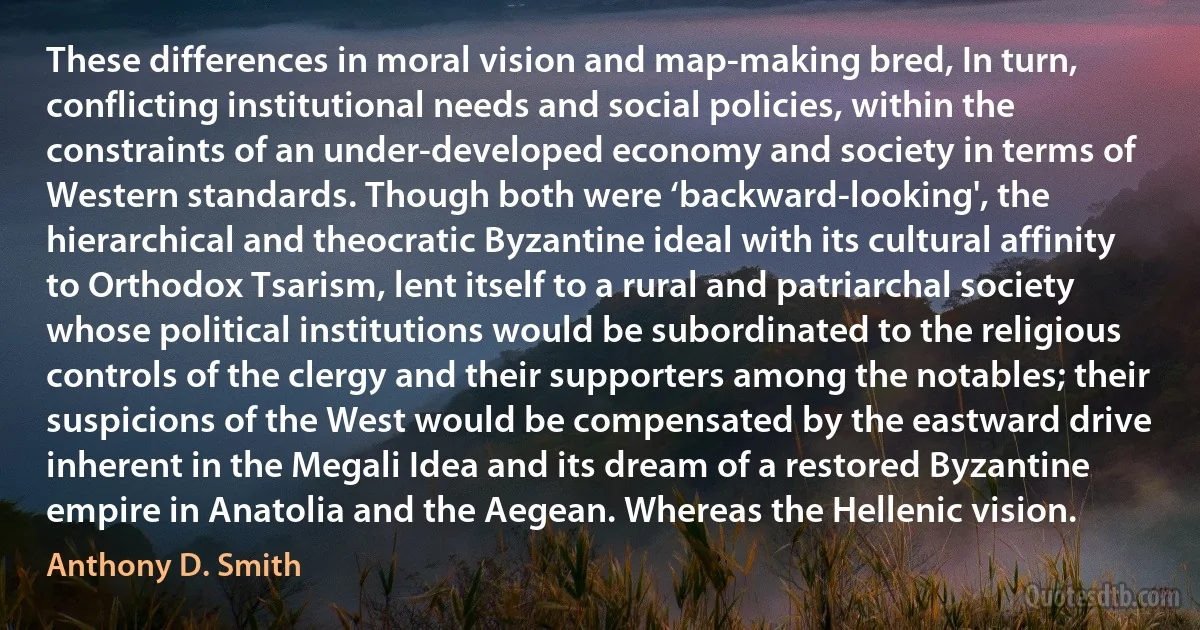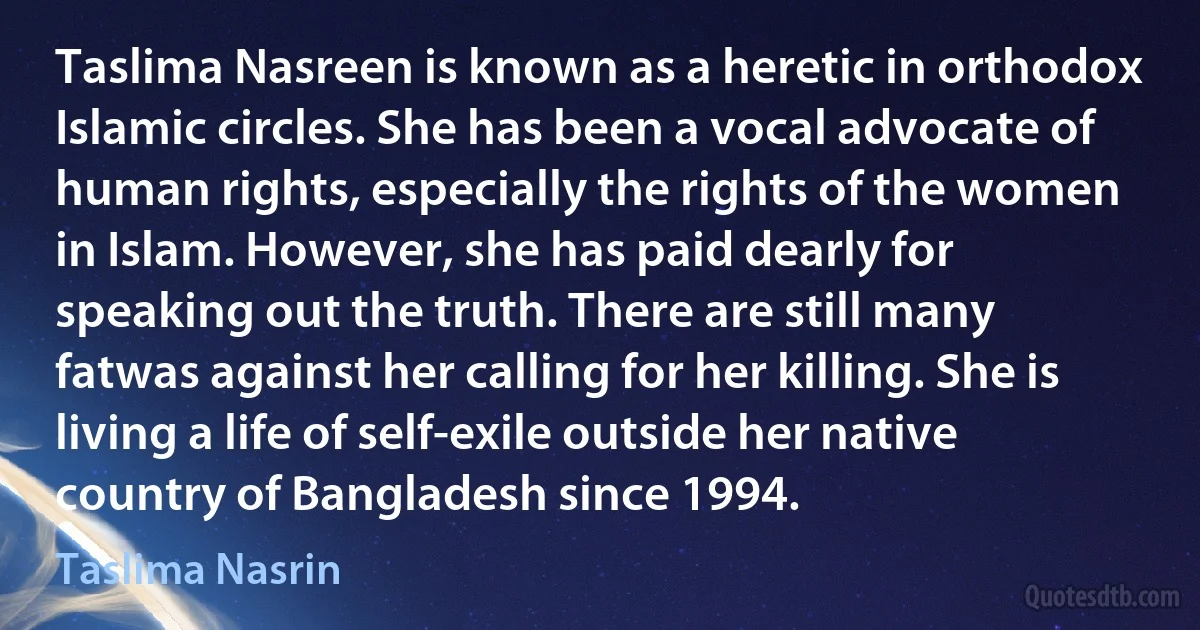Orthodox Quotes - page 9
Everywhere Christians are tempted to take the easy path, to seek "peace" and "security" and flee from pain and affliction, to view life as an occasion for the enjoyment of earthly blessings, instead of a time of trial in which our eternal destiny is to be decided. But God expects more than this from those who glory in the name of Orthodox Christians.

Seraphim Rose
The answer to our anxiety is not drugs, alcohol, tranquilizers or psychiatric treatment. It will not be cured by Yoga or some new age or eastern meditation practice. The problem is that we have lost God as the center of our lives. Once we make our love of God the primary focus of our lives and allow His grace to work though us, then no matter what circumstance we encounter in life we will be comforted and embraced in His love. All anxiety disappears. This is the aim of the Orthodox way of life––To put God first and seek the Holy Spirit. The anxieties of modern life are only symptoms of our separation from God.

Paisios of Mount Athos
Today my position is that though I admire much in Christianity, I am unable to identify myself with orthodox Christianity. I must tell you in all humility that Hinduism as I know it, entirely satisfies my soul, fills my whole being and I find a solace in the Bhagavad Gita and Upanishads that I miss even in the Sermon on the Mount.

Mahatma Gandhi
The dominance of these ideas is not the product of a conspiratorial group that has devilishly plotted to implant on society a particular point of view. Nor is it an accident, an innocent result of people thinking freely. There is a process of natural (or, rather unnatural) selection, in which certain orthodox ideas are encouraged, financed, and pushed forward by the most powerful mechanisms of our culture. These ideas are preferred because they are safe; they don't threaten established wealth or power.

Howard Zinn
My purpose here is to denounce an idea which seems to be dangerous and false. ... Revolutionary trade unionists and orthodox communists are at one in considering everything that is purely theoretical as bourgeois. ... The culture of a socialist society would be a synthesis of theory and practice; but to synthesize is not the same as to confuse together; it is only contraries that can be synthesized. ... Marx's principal glory is to have rescued the study of societies not only from Utopianism but also and at the same time from empiricism. ... Humanity cannot progress by importing into theoretical study the processes of blind routine and haphazard experiment by which production has so long been dominated. ... The true relation between theory and application only appears when theoretical research has been purged of all empiricism.

Simone Weil
My mother was the personification of rectitude and gentleness. She did not know much about the ways of the world; innocent of the art of concealment, she would say what was in her mind. People loved her for open-heartedness. My father, an orthodox brahmin, never accepted gifts from the Sudras. He spent much of his time in worship and meditation, and in repeating God's name and chanting His glories. Whenever in his daily prayers he invoked the Goddess Gayatri, his chest flushed and tears rolled down his cheeks. He spent his leisure hours making garlands for the Family Deity, Raghuvir.

Ramakrishna
Origen understood it well, having been a pupil of Ammonius Saccas; therefore we see him bravely denying the perpetuity of hell-torments. He maintains that not only men, but even devils (by which term he meant disembodied human sinners), after a certain duration of punishment shall be pardoned and finally restored to heaven. ("De Civit. Dei," I, xxi., c. 17.) In consequence of this and other such heresies Origen was, as a matter of course, exiled. (p. 705)
Origen, Clemens Alexandrinus, Chalcidius, Methodius, and Maimonides, on the authority of the Targum of Jerusalem, the orthodox and greatest authority of the Jews, held that the first two words in the book of Genesis--B-RASIT, mean Wisdom, or the Principle. And that the idea of these words meaning "in the beginning" was never shared but by the profane, who were not allowed to penetrate any deeper into the esoteric sense of the sentence. (p. 727)

Origen
That woman is living solely for the cause of India. She is using all her extraordinary power of speech and pen in India's service. There is, of course, in her behaviour with men, a freedom which may appear to the strictly orthodox - Malaviyaji for instance - as going beyond the limits of modesty. She revels in fun and frolic - even mischievous pranks. But to me it seems she is just the sort of person whom all that befits. I know her husband well enough. He, too, is a brave soul. He has the largeness of heart to give her the fullest freedom. They simply hug and dote upon each other. I think she never hides from the public gaze her conduct with anybody. The fact itself is a proof of the purity of her soul.

Sarojini Naidu
His conflict with the Catholic Church arose because deep in his heart Galileo was a believer. There was for him no path of compromise, no way to have separate secular and theological cosmologies. If the Copernican system was true as he believed, what else could Galileo do but fight with every weapon he had in his arsenal... to make his Church accept a new system of the universe. ...In the contrast between Galileo's heroic stand when he tried to reform the cosmological basis of orthodox theology and his humbled, kneeling surrender when he disavowed his Copernicanism, we may sense the tremendous forces attendant on the birth of modern science.

Galileo Galilei
Orthodox Judaism has this amazing set of rules: everyday there's a bunch of strictures of things you're supposed to do, a bunch you're not supposed to do, and the number you're supposed to do is the same number as the number of bones in the body. The number that you're not supposed to do is the same number as the number of days in the year. The amazing thing is, nobody knows what the rules are! Talmudic rabbis have been scratching each others' eyes out for centuries arguing over which rules go into the 613. The numbers are more important than the content. It is sheer numerology.

Robert Sapolsky
Orthodox churches were stripped of their valuables in 1922 at the instigation of Lenin and Trotsky. In subsequent years, including both the Stalin and the Khrushchev periods, tens of thousands of churches were torn down or desecrated, leaving behind a disfigured wasteland that bore no resemblance to Russia such as it had stood for centuries. Entire districts and cities of half a million inhabitants were left without a single church. Our people were condemned to live in this dark and mute wilderness for decades, groping their way to God and keeping to this course by trial and error. The grip of oppression that we have lived under, and continue to live under, has been so great that religion, instead of leading to a free blossoming of the spirit, has been manifested in asserting the faith on the brink of destruction, or else on the seductive frontiers of Marxist rhetoric, where so many souls have come to grief.

Aleksandr Solzhenitsyn
I had never met Bell, nor heard him lecture, but in my reading of his scientific papers I have developed a great admiration for him and his work. I have especially admired his attempts to dismantle the orthodox Copenhagen interpretation of quantum theory, written with such tremendous style and obvious enjoyment. Although in this book I have tried to present a balanced account - arguing one way and then another - I hope that I have done justice to Bell's superbly constructed criticisms. The debate over the meaning of quantum theory will certainly be poorer without him.

John Stewart Bell
Shaw's association with Fabianism is of great importance, for it marks the confluence of two traditions which had been formerly separate and even opposed. Fabianism, in the orthodox person of Sidney Webb, is the direct inheritor of the spirit of John Stuart Mill; that is to say, of an utilitarianism refined by experience of a new situation in history. Shaw, on the other hand, is the direct successor of the spirit of Carlyle and of Ruskin, but he did not go the way of his elder successor, William Morris.

Raymond Williams
Moral indignation is jealousy with a halo. It is the peculiar snare of the perplexed orthodox, and soon Mr. Brumley was in a state of nearly unendurable moral indignation with Sir Isaac for a hundred exaggerations of what he was and of what conceivably he might have done to his silent yet manifestly unsuitably married wife.

H. G. Wells
In virtue of our pastoral office committed to us by the divine favor we can under no circumstances tolerate or overlook any longer the pernicious poison of the above errors without disgrace to the Christian religion and injury to orthodox faith. Some of these errors we have decided to include in the present document; their substance is as follows:.

Pope Leo X
The worship of Shiva, Vishnu, and other popular deities was of the same and in many cases of a more degraded and savage character than the worship of Jupiter, Apollo or Minerva. ... A religion may linger on for a long time, it may be accepted by large masses of the people, because it is there, and there is nothing better. But when a religion has ceased to produce defenders of the faith, prophets, champions, martyrs, it has ceased to live, in the true sense of the word; and in that sense the old orthodox Brahmanism has ceased to live for more than a thousand years.

Max Müller
When the conductor Richard Hickox rang me one day in 1984 to ask if I could help with a rather unusual job for which he and his choir had been engaged, I was intrigued. Kate Bush, it transpired, was working on her new album, Hounds of Love, and for one track, Hello Earth, she wanted a chorus to recreate the orthodox singing/chanting that made such a contribution to the film Nosferatu.

Kate Bush
In an exchange several months after his New York Review of Books article, Weinberg admitted that the founders of quantum theory had been wrong in their "apparent subjectivism," and declared that "we know better now." What exactly do we know better now? Do we know better that one should not infer from the physical to the political realm and if yes, why? Or do we know better that the "orthodox" interpretation of quantum physics the one that confidently announced the final overthrow of causality and the ordinary conception of reality is not the only possible interpretation, and that, ultimately, it might not even be the surviving one?

Mara Beller
I mean the permissive, metropolitan liberalism which uses the language of protest, progress and the open mind but which has by now become orthodox, predictable and is in many cases the mindless slogan of empty minds. Above all I mean the liberalism which over the last twenty years has encountered virtually no opposition and for which the events of the last six weeks have come as a particularly nasty revelation of the state of public thinking.

Maurice Cowling
I have long contended that Islam is unique among the major world religions in having a developed doctrine, theology, and legal system mandating warfare against and the subjugation of unbelievers. There is no orthodox sect or school of Islam that teaches that Muslims must coexist peacefully as equals with non-Muslims on an indefinite basis. I use the term "radical Islam” merely to distinguish those Muslims who are actively working to advance this subjugation from the many millions who are not, as well as to emphasize that the stealth jihad program is truly radical: it aims at nothing less than the transformation of American society and the imposition of Islamic law here, subjugating women and non-Muslims to the status of legal inferiors.

Robert Spencer



